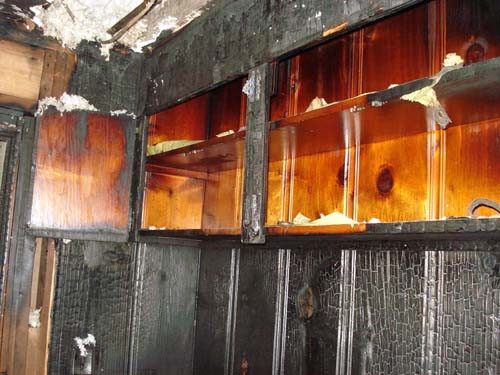Property Insurance Exclusions, Fraud, And Assignment of Benefits After Hurricane Ian Shock Property Owners In Florida
"Texas property owners should be aware of the financial train wreck in Florida so they can avoid the same pitfalls that are destroying the property assets of Florida business owners and home owners," stated Jennifer LeMaster, a well-known property insurance attorney in the Houston and Woodlands metro areas. "Florida is a unique situation and it clearly illustrates the failure of politicians to protect residential and commercial property owners from common sources of fraud and resulting litigation. Almost every large private insurance company has left the state. Hurricane Ian has exposed Florida as the 'poster child' of what not to do in the property insurance market." Ms. LeMaster is a principal at LeMaster & Ahmed PLLC in Houston.
Texas, Florida, and the other Gulf Coast states are very difficult places for property insurance companies to do business. Their coastal areas are very susceptible to dangerous weather events such as tropical storms and hurricanes that create massive damage. And climate change is making these weather events more frequent and more intense. Basically, from an insurance point of view, these coastal areas are the most risky areas of land in the world.
The Reasons Florida Has A Property Insurance Crisis
Florida has had a property insurance crisis for twenty years. Most major property insurance companies have left the state because their payments for property losses have exceeded their income from clients' premiums. Smaller in-state private insurance companies have tried to fill the vacuum but their efforts have largely resulted in massive losses and bankruptcy. Before hurricane Ian Florida homeowners were paying nearly triple the national average for a year of coverage. Soon the only entity willing to insure Florida property owners may be the state - that is, the taxpayers.
Hurricane Risk
The hurricane risk in Florida is one of the greatest property risks of any state in the United States. All Gulf coast states have similar risks which include Texas, Louisiana, Alabama, and Mississippi. All of these states are a risk of $30 or $40 billion in property damage from a hurricane. Property losses on this scale are rarely or never seen in other states.
Assignment of Benefits
Assignment of Benefits is a process where the homeowner assigns the insurance benefits to a contractor who has inspected the damage and estimated the cost of repair. The problem usually arises when the contractor claims an amount that the insurance company thinks is inflated. The contractor can claim any amount they choose without needing the property owner's consent. That usually leads to a lawsuit between the contractor and the insurance company. Or the insurance company can pay the amount submitted by the contractor. Either option is expensive for the insurance company.
Although other states allow athe ssignment of benefits the state of Florida has been ineffective in its regulation. This is a legislative issue and can be fixed by the state's politicians. However, there are groups that are lobbying against any change and prefer the status quo.
Litigation
Florida is the property insurance litigation capital of the country. “As vigorous defenders of policyholders in Texas, it is most certainly expected that insurers make poor claims decisions that necessarily rresultin litigation. For Florida, however, the volume of litigation outpaces the norm,” says Ms. LeMaster. Florida accounts for about 9% of homeowner property claims nationwide, which is above i% of the total population of the country. However, given its geographic location in the middle of "hurricane alley", it should not be a surprise that Florida has more than its share of insurance property claims. The eye-popping number is that 79% of all United States property claims lawsuits originate in Florida.
Florida had 116,000 property claim lawsuits in 2021 and was on track for 130,000 before Hurricane Ian. By comparison, California, with double the population of Florida, had 3500 property claim lawsuits.
Water vs. Wind And Property Insurance Exclusions
Another issue that complicates the property insurance market in Texas and Florida is that flood insurance is mostly available through the National Flood Insurance Program. But a surprising number of property owners in Florida did not have flood insurance prior to Hurricane Ian. That fact is probably due to the cost of flood insurance which undoubtedly will cost more in the future. But it has created a huge conflict between property insurance companies and property owners about the "cause" of their damage - Was it wind or water? Property owners are claiming high winds caused their property damage and should be covered. Insurance companies, which exclude flood damage protection in their policies, claim that the majority of property damage was caused by flood and / or water surges and therefore is NOT covered. This conflict of opinion is leading to more property damage lawsuits.
The Cost of Property Claims Lawsuits
The cost of property claims lawsuits in Florida was an estimated 3 billion dollars in 2019. An additional 1 billion dollars in costs were incurred in both 2020 and 2021. These numbers refer to just the cost of litigating the lawsuits, not payments to the insured.
What Should Texas Property Owners Expect From Property Insurance?
Texas lawmakers should take a good hard look at the property insurance disaster in Florida. The key is to design a claims process that is efficient, effective and, most importantly, fair. Insurance companies should probably pay the owner of the property and limit or eliminate the "assignment of benefits" option. It is clear that the option of assignment of benefits has the strong propensity to be corrupted. In addition, the property damages and repair costs should be evaluated by at least two or three licensed contractors. And the technology exists to document all property damages with photos and videos. If photos and videos are a mandatory part of the estimation and repair process it will significantly reduce instances of fraud and it will hold insurance companies accountable for valid losses.
LeMaster & Ahmed PLLC, Attorneys at Law, are property insurance attorneys in Houston and The Woodlands. They are aware of negotiation tactics used by the opposing lawyers and adjusters due to their prior experience working with property insurance companies. They represent clients with litigation of complex property insurance coverage issues and first-party bad faith disputes involving commercial and residential property claims.



































